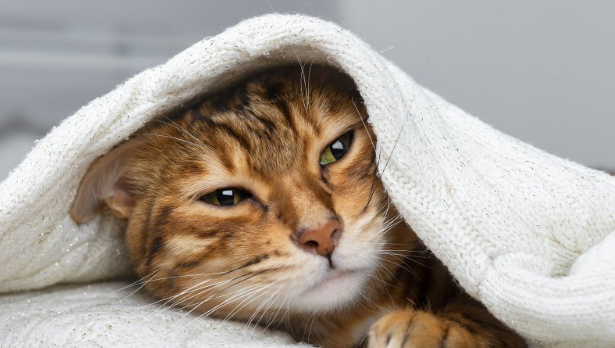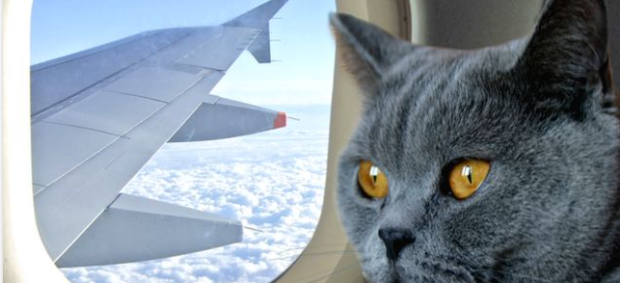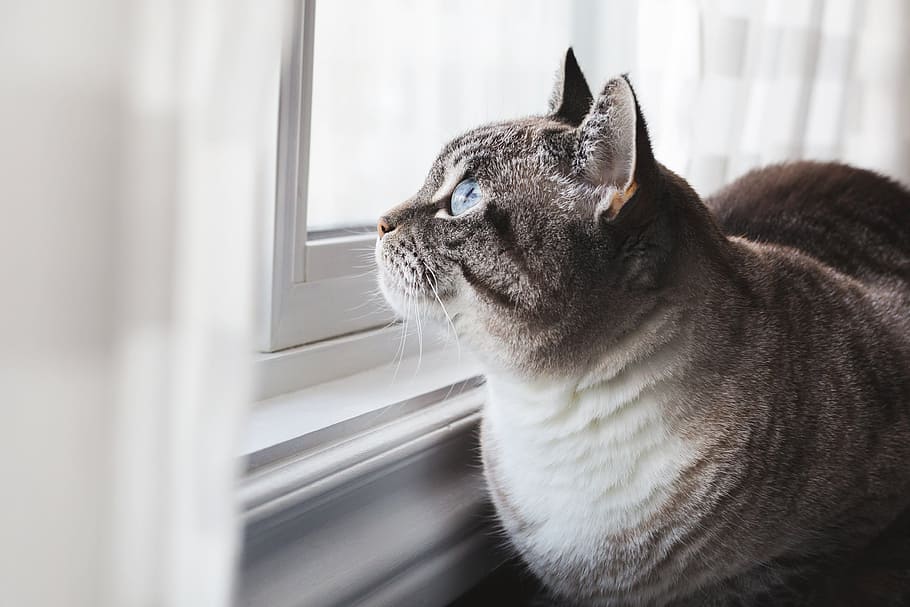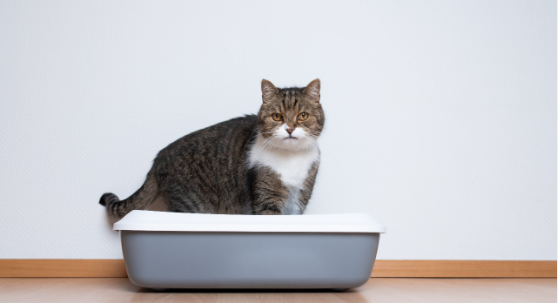How can I sedate my cat naturally?
Cats are known for their aloof and independent nature, but there are times when they need to be calmed down and sedated to avoid causing harm to themselves or others. Whether it’s for grooming, transportation, or a visit to the vet, sedating your cat can make the process less stressful for both you and your furry friend.
Importance of Sedating a Cat
Sedating a cat is important in many situations. For instance, some cats become anxious or aggressive during grooming sessions or vet visits. This can make it difficult for them to receive proper care without being restrained physically, which can lead to injuries.
Additionally, some cats become extremely anxious during travel, which can lead to excessive meowing and restlessness. In such cases, sedation becomes necessary as it helps the cat remain calm while receiving medical treatment or being transported.
Moreover, sedation also prevents your cat from hurting itself or others in extreme cases of anxiety. It is important that pet owners understand the importance of cat sedation before deciding whether they should use natural remedies or take their cats to see a veterinarian.
Natural Sedatives for Cats
While prescription drugs are available for sedating cats in certain situations under veterinary supervision only, some pet owners prefer natural remedies as they do not have side effects commonly associated with drugs such as lethargy and drowsiness. There are different types of natural sedatives that can be used on cats depending on their situation and behavioural patterns.
Herbal remedies such as valerian root and chamomile have been used by pet owners successfully for decades. Essential oils like lavender oil have also proven effective in calming down anxious felines naturally.
If you’re considering using natural remedies on your cat rather than prescription drugs then understanding the importance of cat sedation is critical before proceeding with any form of treatment. It’s also important to consider the best natural sedatives for your cat as not all remedies will work in every situation.
Understanding Your Cat’s Behaviour
Reasons why cats get anxious or stressed
Cats are known for their sensitive nature, and there could be various reasons why your cat might be feeling anxious or stressed. Some common causes could include being left alone for long periods, loud noises such as thunderstorms or fireworks, changes in their environment like moving to a new home, the presence of other animals or people they are not familiar with, and illness. It is essential to identify the underlying cause of your cat’s anxiety as it will help you determine the best way to manage it.
Signs of anxiety in cats
Cats express their anxiety differently from one another. Some signs are more obvious than others.
A few common signs include hiding away from people, excessive grooming or licking of fur, lack of appetite, aggressive behaviour towards other animals or humans, excessive meowing or crying out for attention, and urinating outside the litter box. You may notice that your cat may start tearing up furniture around them or even become destructive despite having no history of this behaviour.
It is essential to monitor any changes in your cat’s behaviour carefully so that you can identify any potential triggers that may be causing them stress. Once you know what causes your cat’s stress level to increase beyond normalcy and how they express it; you can take steps accordingly like trying natural sedatives to calm them down.
Natural Sedatives for Cats
Herbal remedies
As a cat owner, there are many natural remedies available to help with your cat’s anxiety and stress levels. One of the most popular and effective ways to help calm your cat is by using herbal remedies. There are several herbs that can be used as natural sedatives for cats, such as valerian root, chamomile, and passionflower.
Valerian root
Valerian root is a well-known herb that has been used for centuries to promote relaxation and reduce anxiety. It contains compounds that act on the nervous system to produce a calming effect on the body.
Valerian root can be given to cats in the form of capsules or in a tincture mixed with food or water. However, it is essential always to follow the recommended dosage instructions from your veterinarian or an expert in feline health.
Chamomile
Chamomile is another herb commonly used as a natural sedative for cats due to its calming properties. It contains compounds like apigenin and luteolin that have anti-inflammatory effects on the body, which can reduce stress and promote relaxation. Chamomile can be administered to cats in several ways like tea bags made into tea or mixed with food or water.
Passionflower
Passionflower is also an effective herb that can help calm anxious cats. It contains flavonoids called chrysin which lower stress levels by boosting gamma-aminobutyric acid (GABA).
GABA acts as an inhibitory neurotransmitter in the brain, reducing neural activity and leading to relaxation. Passionflowers can be given as capsules or added to food.
Essential oils
Essential oils contain concentrated plant extracts with therapeutic properties that may reduce stress and anxiety in cats. Inhaling the aroma or using them topically can help calm your cat and promote relaxation.
Lavender oil
Lavender oil has a calming effect on both humans and pets. The scent of lavender interacts with the neurotransmitter GABA, which slows down neural activity, leading to a relaxed state. Mix a few drops of lavender oil with water in a diffuser or spray bottle to create a calming environment for your feline friend.
Chamomile oil
Like chamomile herb, chamomile oil also has relaxing properties for cats. It contains the same compounds as the herb that can reduce anxiety levels and promote sleep. Dilute chamomile oil in water or carrier oils like coconut or olive oil before applying it topically to your cat’s paws or ears.
Vetiver Oil
Vetiver essential oils are an excellent sedative for cats that suffer from separation anxiety, fear of loud noises, and hyperactivity. Vetiver is known to have anti-anxiety effects on the brain by reducing heart rate, and blood pressure, and increasing cortisol levels in cats.
Add a few drops of vetiver essential oils into a diffuser to create an environment that is conducive to calmness for your furry companion. When using natural sedatives for cats like herbal remedies or essential oils ensure you talk to your veterinarian first always follow their advice on dosage instructions as every pet differs from each other in terms of weight and health status.
Preparing and Administering the Sedative
Creating a Calming Environment for Your Cat
Cats can be easily stressed and anxious, so it’s important to create a calming environment for them before administering any natural sedatives. You can use several methods to create a relaxing environment, including playing soothing music, turning off loud noises, and using pheromone sprays. Soft instrumental music is ideal as it can soothe the cat’s nerves and make them feel more relaxed.
On the other hand, loud noises like vacuum cleaners or hairdryers may scare your cat and make them more anxious. Pheromone sprays mimic the natural pheromones that cats release when they are happy or relaxed.
These sprays can help calm down your cat by creating a familiar environment that will help reduce stress levels. Simply spray the pheromones on your cat’s bedding or around their sleeping area to create a calming effect.
Administering the Natural Sedative to Your Cat
There are various ways in which you can administer natural sedatives to your cats. One is mixing herbal remedies with food or water.
This method is particularly useful if you have a fussy eater as you can mix the sedative with their favorite food or drink without them realizing it. Another way to administer natural sedatives is by diffusing essential oils in the room.
Essential oils such as lavender oil, chamomile oil, and vetiver oil have been known for their calming effects. You can add a few drops of these essential oils into your diffuser and let it run for several minutes before introducing the cat into the room.
It’s worth noting that while natural sedatives may be safe for most cats, consult with your veterinarian before administering any medication or remedy to ensure that it won’t interact negatively with other medications your cat may be taking. It’s also important to avoid using natural sedatives if your cat has certain health conditions or is pregnant.
Precautions and Safety Measures
Consulting with a veterinarian before administering any natural sedative to your cat
Although natural sedatives are considered safer than synthetic ones, it’s essential to consult with a veterinarian before administering any sedative to your cat. Some cats may have underlying health issues that could be exacerbated by certain natural remedies.
A vet will also help you identify the correct dosage for your cat’s size and weight, as well as provide guidance on the frequency of use. In some cases, sedation may not be necessary or even advisable.
For instance, if the cat is in severe pain or has respiratory problems, sedating it can worsen the condition. Similarly, if the cat is on medication that can interact with the natural remedies used for sedation, such as anti-anxiety drugs or antidepressants, it’s best to avoid using them without consulting a vet first.
Knowing when not to use natural sedatives
There are situations when natural sedatives may not be appropriate for cats. For example, if you plan to travel with your cat by air, most airlines prohibit the use of any form of tranquilizer unless prescribed by a vet. Additionally, some states have laws that restrict or prohibit pet owners from administering any type of medication without veterinary authorization. It’s also important to note that natural remedies can take longer to take effect compared to synthetic ones and may not work effectively in all cats.
If your cat has acute anxiety or aggression issues that require immediate attention, contacting a professional behaviorist can offer more effective solutions than attempting home remedies alone. While there are many benefits of using natural sedatives for cats over synthetic ones due to the lack of side effects and high safety levels; however proper consultation with a veterinarian is necessary before administering them as well as knowing when they should be avoided altogether in certain situations.
Conclusion
Sedating your cat naturally can be a safe and effective way to help them relax and reduce their anxiety. However, it is important to remember that every cat is different, and what works for one may not work for another. It is vital that you consult with a veterinarian before administering any natural sedatives to your cat, especially if they have any underlying health conditions or are taking medications.
It’s also important to note that there are some situations where natural sedatives may not be appropriate or effective. For example, if your cat is experiencing severe anxiety or stress, it may be necessary to seek more traditional methods of sedation such as prescription medication.
Overall, using natural remedies like herbal remedies and essential oils can provide a gentle solution for calming an anxious cat. Creating a peaceful environment through pheromone sprays and calming music can also work wonders in reducing stress levels.
With patience and careful observation of your feline friend’s behaviour, you’ll be able to find the right combination of methods that work best for them. By doing so, you can help your furry companion lead a happier and more relaxed life!





Leave a Reply